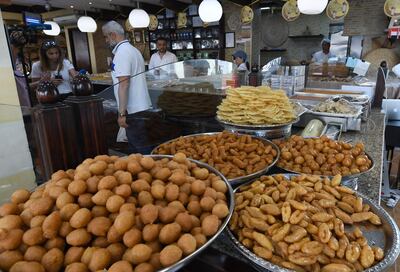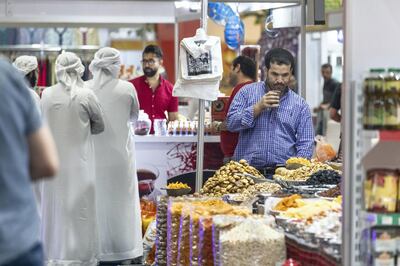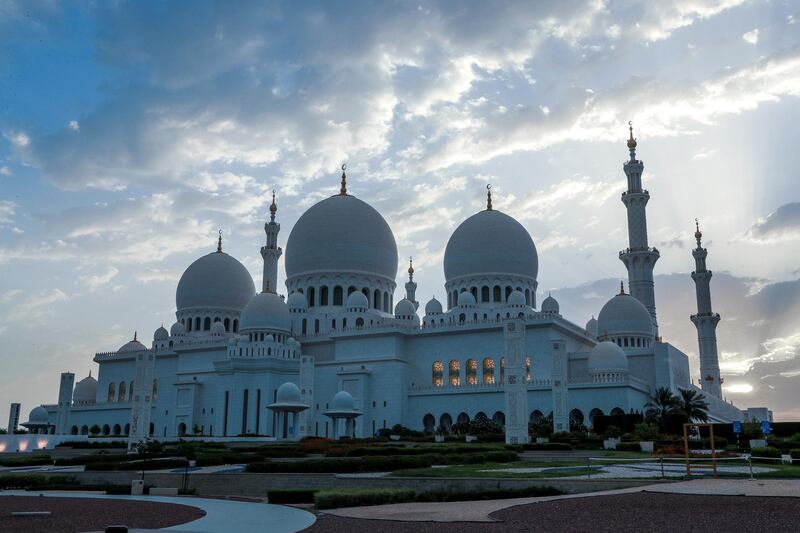Ramadan is a time for spiritual reflection and regeneration, a strengthening of belief through feeding the mind rather than the body. But what is the impact on economic growth and development in Muslim-majority countries?
The issue is a complex one, even if it is sometimes dealt with simplistically.
If 700 million Muslims deny themselves sustenance during daylight hours for a month, and often shorten working days by several hours, surely this will hit productivity?
Yet others have argued that if properly observed, a Muslim worker after fasting can be more focused on important tasks and emerges as a better person and a better employee.
Work from home culture
One significant change is the impact on work of the Covid-19 pandemic. Businesses have widely introduced more flexible working hours, and, where possible, remote working. Both of these can benefit employees — and potentially improve productivity — during Ramadan.
In Oman, the Ministry of Labour this year introduced three shifts in addition to the normal reduced working hours of 9am to 2pm. Government workers had the option of 7am to 12pm, 8am to 1pm and 10am to 3pm. Department staff could also work remotely provided they were in the office 60 per cent of the time.
Saada Al Ismaili, vice-president of Oman women’s sports and gender equality, committee told the Times of Oman: “Remote work helps to avoid time lost in commuting to the office and flexible working hours certainly enhance productivity. Reduction in commuting hours to work is a big advantage.”
The UAE has told federal government workers to work remotely for 70 per cent of their hours on Fridays during Ramadan.
Over the years, several attempts have been made to measure the role Ramadan plays in economic growth. The most comprehensive is a 2014 report by the US-based National Bureau of Economic Research, using data from Muslims fasting in 167 countries over 60 years.

The study, by Filipe Campante and David Yanagizawa-Drott, concluded that researchers had “established causal evidence for a negative effect of Ramadan fasting on economic growth in Muslim countries”.
But it also reported that this was “accompanied by an increase in the levels of self-reported happiness and life satisfaction among Muslims”.
Effects of the season
The NBEC study also found — after comparing summer Ramadans with those that fell in winter — that the length of the fast was significant in measuring the loss of productivity.
In the Southern Hemisphere, a Ramadan in July is a season of shorter days, while in the Northern Hemisphere they are much longer, allowing a direct comparison.
“Longer prescribed Ramadan fasting has a robust negative effect on output growth in Muslim countries,” the report said. Lengthening the fast by a single hour could reduce output growth by 0.7 per cent, it said.
This was only observed in Muslim-majority countries, however, as was another finding; that Ramadan makes people happier. “Put simply, it makes them happier in spite of making them relatively poorer,” the authors said. The two effects could cancel each other out, it added.

Dr Rumy Hasan, a lecturer in science policy research at the University of Sussex in the UK, said he believed Ramadan did restrict economic growth.
Based on a typical reduction of the working day by two hours in Muslim countries, and factoring in the loss of productivity from fasting workers, he calculates the holy month “has a three per cent recessionary impact every year. There is no getting around it”.
He found the total loss of 42 working hours for each employee during Ramadan is not made up during the rest of the year. “The reduction in working hours are not compensated for afterwards,” he said.
This view is contradicted by the National Bureau of Economic Research study, however. It also does not take account of the boost to the economy during Ramadan and Eid, with increased spending especially in the hospitality and leisure sectors.
Fawaz Al Hajri, a Qatari economist, claimed this week that spending and consumption rates in several sectors would double during Ramadan, giving as an example the 2022 World Cup when working hours were cut by 80 per cent with no impact on overall productivity.
“Fasting and its duration do not affect productivity. On the contrary, the holy month is a catalyst for all its operations,” he said.
Increased spending
A 2015 poll by YouGov in the Middle East and North Africa found that almost exactly half of respondents said they were as productive during the holy month as the rest of the year, but that six out of 10 said their spending went up during Ramadan.
Almost a third also said they put off making major purchases until the Ramadan sales.
Another survey, by the Islamic marketing consultancy Ogilvy Noor, in 2018, calculated Ramadan was worth £200 million (Dh900 million) alone to the economy of the UK, a non-Muslim majority country.
Online shopping proved another stimulus, with internet sales rising by 106 per cent in the second week of Ramadan, while travel plans rose by 51 per cent leading up to Eid Al Fitr in the Middle East.

A joint survey from 2011 by DinarStandard, a growth research consultancy, and Productive Muslim, described as the world's first personal development platform for Muslims.
It reported 77 per cent of Muslims said they tried to maintain the same level of productivity as during the rest of the year. Only three per cent agreed with the proposition “nobody works during Ramadan”.
The report calculated the loss in monthly gross domestic product or the market value of services and goods during Ramadan, finding that it represented four per cent per hour of work reduction per day.
Bearing in mind the report is 12 years old, for Saudi Arabia, this was around $2.4 billion for the month, and for the UAE, $1.47 billion.
But the report also found employers can make a big difference in the degree of flexibility and understanding they show to Muslim employees, especially in non-Muslim majority countries.
This is echoed by a 2017 report by Oxford Strategic Consulting, which disputed a link between the number of hours of a working day and productivity.
“Rather than worry about the negative effects on business,” it said of the GCC and Mema regions, “business leaders should instead focus on improving well-being, increasing engagement and embracing flexible work patterns during the Islamic holy month”.
Productive Muslim takes another approach. It was founded in Texas by Mohammed Faris, who formally worked in risk management, with the aim of helping Muslim professionals with their work-faith balance.

For Ramadan, it offers “seven steps to stay sane and spiritual”, including maximising time with the Quran and forward planning key tasks that need to be accomplished during the working day.
This month, said Mr Faris, is a unique opportunity to become more productive in all areas of your life. “Ramadan is a training camp to help prepare you to live the best version of yourself spiritually, physically, socially,” he said.
A version of this story was published on May 30, 2019.







